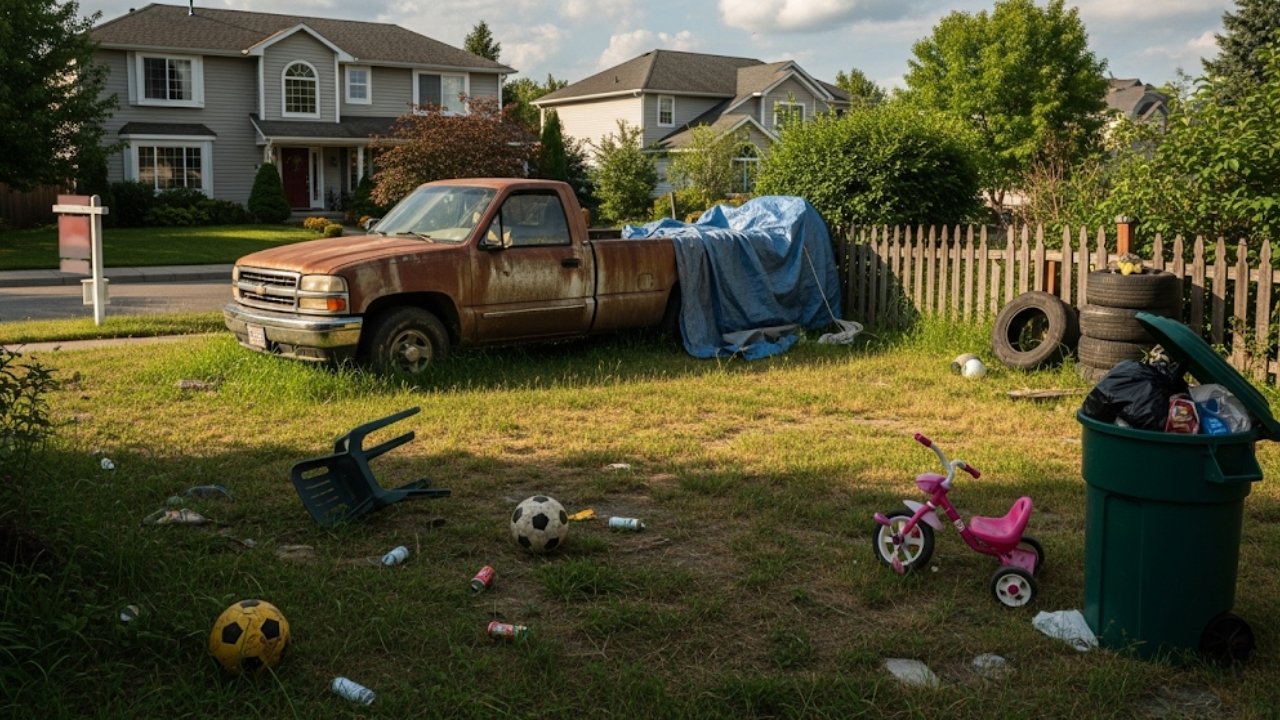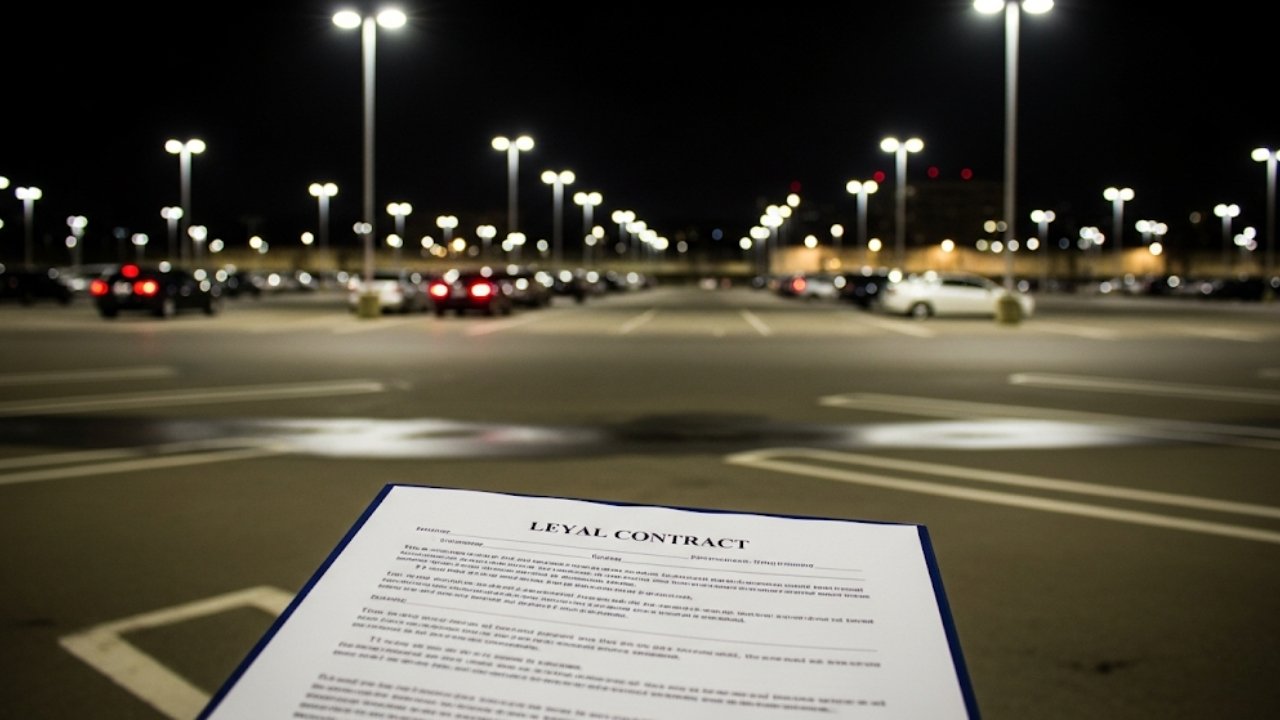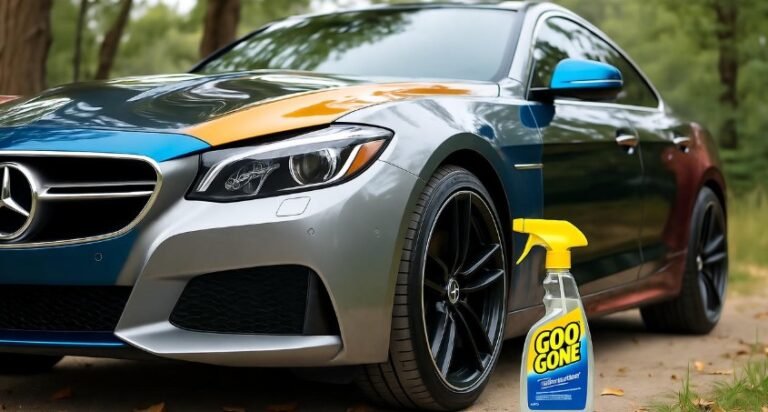What Happens When You Break the HOA Rules?

Peter loves his racing car. With its sleek spoiler, low ground effects, and a body that hugs the pavement like a shadow, it’s more than just a car—it’s an identity. But in the quiet suburb governed by a vigilant Homeowners Association (HOA), that sleek machine has become a ticking time bomb of fines and frustration.
If you’ve ever had to navigate the strict web of HOA parking rules, you know how confusing—and expensive—it can get. This article dives into the specifics of a real-world HOA rule regarding overnight parking on community streets, how it impacts homeowners like Peter, and—most importantly—what consequences are coming next.
Let’s break it down together, with a friendly, no-fluff explanation and a few real-life insights.
What Does “Overnight” Parking Mean in This Contract?

This specific window isn’t random. These hours:
-
Are typically when community activity is lowest
-
Align with times when unauthorized or abandoned vehicles might appear suspicious
-
Make it easier for security to focus on violators
By creating this clear overnight window, the HOA removes any gray area about when a car is violating the rule.
And that rule? It’s straightforward:
Overnight parking on community streets is prohibited.
That means, from 11 p.m. to 4 a.m., if your car is on the street instead of your driveway or garage—you’re in violation.
Why Does the HOA Monitor Overnight Parking?
You might wonder—why does the HOA even care?
The HOA isn’t just being picky. There are real reasons behind the rule:
-
Emergency access: Fire trucks and ambulances need a clear path at night.
-
Aesthetic value: A cluttered street lowers property value.
-
Safety: Cars parked overnight can invite theft or crime.
-
Fairness: Prevents residents from using the street as long-term storage.
To keep things consistent, the contract says:
The HOA will monitor overnight parking not less than once every calendar week with nightly patrols by community security.
That means at least once a week, someone is cruising through your neighborhood during the wee hours, clipboard in hand, looking for violators like Peter.
What Happens When a Violation Occurs?
When a car is found violating the overnight parking rule, and the ownership can be accurately linked to a community homeowner, there’s a strict penalty process.
Let’s break it down step by step:
| Infraction # | Consequence |
|---|---|
| First | One (1) written warning to correct the situation |
| Second | Monetary fine (as allowed by CC&R/HOA bylaws) |
| Third | Additional monetary fine |
| Fourth+ | More fines + Towing at the homeowner’s expense |
This isn’t just about the same car. The rules clearly state:
“A second and third infraction by the same homeowner, whether or not it is with the same car…”
So switching cars won’t save you. The HOA is tracking homeowners, not just license plates.
️ Peter’s Situation: The Racing Car and the Reality
Now, let’s get back to Peter, our proud car enthusiast.
-
His car is a low-profile racing vehicle
-
Due to extremely low ground clearance, he can’t get it onto his driveway
-
So, he’s been parking on the street every night—for five straight weeks
-
He’s already received:
-
One written warning
-
One monetary fine
-
And here we are, another week later. The community patrol is coming around again. Peter’s car? Still parked right where it’s not supposed to be.
Let’s think this through…
What’s the Likely Outcome for Peter This Week?
This brings us to the million-dollar question:
What consequences should Peter expect after this week’s security check?
Your options:
a. His car will be towed
b. He will receive another monetary fine
c. He will receive a monetary fine and his car will be towed
d. A “boot” will be placed on his car to prevent him from driving it
Let’s walk through the logic.
Peter has:
-
One warning ✔️
-
One fine ✔️
-
This week will be his third infraction ❗
According to the policy:
“Further infractions (past 3) will result in monetary fines in addition to the towing of the car at the homeowner’s expense.”
But he’s only on number three, not “past” three. That means…
The third infraction results in another fine only.
Towing kicks in after the third violation.
✅ So the correct answer is:
b. He will receive another monetary fine.
Why This Matters: Understanding How HOA Enforcement Works
Rules like this might sound harsh, but they serve a greater purpose. They protect the look, feel, and safety of the neighborhood. But they can also be frustrating, especially for car enthusiasts or those with limited parking options.
Peter’s case is tricky. He’s not being defiant—he’s being practical. His car just can’t make the climb into the driveway without scraping the undercarriage. And yet, he’s being fined because the rule is absolute.
This is where a little communication can go a long way. Most HOAs allow homeowners to:
-
Submit parking hardship requests
-
Apply for special permits
-
Attend HOA meetings to appeal rules
Peter might not be out of options—but he’s running out of time.
Can Peter Modify His Driveway or Car?
Let’s consider some practical fixes Peter might explore:
Car Modifications:
-
Adjustable air suspension: Allows lifting the car temporarily.
-
Ramps or risers: Used at the base of steep driveways to reduce the angle.
-
Garage conversion: If he has one, maybe restructure the access point.
Driveway Adjustments:
-
Smoothing the incline (if HOA and city codes allow)
-
Installing low-angle concrete ramps
HOA Solutions:
-
Request temporary parking approval
-
Park in a neighbor’s driveway with permission
-
Submit appeals citing mechanical limitations
If Peter had taken one of these steps early, he might’ve avoided this whole situation. But five weeks in? He’s now deep in violation territory.
When Will the Towing Actually Happen?
Let’s revisit the wording of the rule:
“Further infractions (past 3) will result in monetary fines in addition to the towing of the car at the homeowner’s expense.”
Peter’s third violation triggers another fine. But once a fourth violation occurs—likely next week if he keeps parking on the street—then things get serious.
At that point, the HOA has the right to:
-
Fine Peter again
-
Tow the car without further warning
-
Charge towing and storage fees to Peter directly
So, unless Peter changes something immediately, the next patrol will not just leave a ticket—it could leave a tow slip.
How HOAs Can Make or Break the Neighborhood
While Peter’s case stirs empathy, let’s zoom out. HOAs are built to:
-
Preserve property value
-
Ensure uniform standards
-
Maintain a safe and clean community
But here’s the reality—not every homeowner fits perfectly into the mold.
Cars like Peter’s aren’t “bad,” they’re just different. When rules don’t allow flexibility, conflict brews. And that’s exactly where many HOAs falter—by failing to recognize nuance.
However, smart HOAs:
-
Allow grievance processes
-
Have parking waivers for special cases
-
Let homeowners voice concerns
That’s why communication matters as much as compliance.
How to Appeal or Address the Issue Proactively
Peter may feel trapped, but he still has options before his car gets hauled away. Here’s what he—and others—can do:
1. Write a Formal Appeal to the HOA
-
Explain the low-profile car situation
-
Provide photos of driveway access issues
-
Request a temporary waiver while a solution is pursued
2. Offer a Compromise
-
Ask for permission to park in a less-congested area
-
Suggest specific nights or time windows for exception
️ 3. Implement a Solution
-
Use driveway ramps
-
Modify the driveway angle (if allowed)
-
Park in a friend or neighbor’s driveway
4. Speak at the Next HOA Meeting
-
Raise awareness of the issue
-
Get support from fellow residents
-
Explore the possibility of revising the strict policy
In many cases, an HOA isn’t the enemy—they’re just enforcing rules that haven’t been updated to meet modern needs.
Why Can’t the HOA Just Give Peter a Pass?
It’s easy to ask, “Why not just let it go?”
But if the HOA makes an exception for Peter, what stops:
-
Another homeowner with a pickup truck
-
Someone claiming garage renovations
-
Others who simply prefer street parking
The precedent becomes the problem. That’s why many HOAs enforce blanket policies.
Still, there’s always room for humanity in enforcement—if homeowners engage early and collaborate, not complain.
Let’s Revisit the Main Keyword
To keep this article SEO-rich, let’s refocus on the primary keyword:
Overnight parking on community streets is prohibited.
This phrase is central to the HOA’s message. But here’s how it fits into a bigger digital conversation:
-
Search intent: People searching this are likely confused or worried about an HOA notice.
-
Emotional layer: There’s frustration, fear of fines, and a sense of helplessness.
-
Opportunity for clarity: A well-written article (like this one) offers relief and step-by-step guidance.
Frequently Asked Questions
❓1. Can I park overnight on my street if I have no room in the driveway?
No. If the HOA rules state that overnight parking on community streets is prohibited, it applies regardless of your driveway situation. You may request an exception, but without approval, you are in violation.
❓2. What happens if I ignore the written warnings and fines?
After the third infraction, the HOA can begin towing your car at your expense. You’ll also continue to receive additional fines.
❓3. Can I contest a fine from the HOA?
Yes. Most HOAs offer an appeal process. You’ll need to submit a formal letter, possibly attend a hearing, and present evidence.
❓4. What if my guest parked overnight by mistake?
Some HOAs allow a few guest exceptions per year. You must usually register the guest vehicle in advance. If you didn’t, the homeowner may still be fined.
❓5. Can the HOA place a boot on my car?
Typically, no—unless your HOA documents explicitly allow it. This case’s contract makes no mention of a boot, only fines and towing.
❓6. How can I know how many violations I have?
Contact your HOA management company or check your resident portal (if available). They keep a record of all fines and notices.
❓7. What is the best way to avoid future infractions?
-
Move your car before 11:00 p.m.
-
Park in the garage or driveway
-
Ask neighbors to swap parking spaces
-
Attend HOA meetings to suggest rule changes
Parking Violations Table: Understanding Escalation
| Infraction | Result | Cost |
|---|---|---|
| 1st | Written Warning | $0 |
| 2nd | Monetary Fine | Varies by HOA (e.g. $50) |
| 3rd | Additional Fine | Higher fine (e.g. $100) |
| 4th+ | Fine + Car Towed at Your Expense | Fine + Tow (~$200–$500+) |
Final Thoughts: More Than Just Rules
HOA rules like “overnight parking on community streets is prohibited” might seem cold or rigid at first glance. But they exist to protect the neighborhood.
Still, that doesn’t mean there’s no room for understanding.
Peter’s situation is a perfect example of how modern lifestyles sometimes clash with traditional HOA expectations. But with open communication, smart compromise, and a proactive mindset, there’s almost always a way forward.
For Peter, the next week is crucial. His next infraction won’t just cost him money—it could cost him access to his beloved car.
So if you’re in a similar situation, take action before your tires get towed. Don’t wait for the patrol truck to decide your fate.






